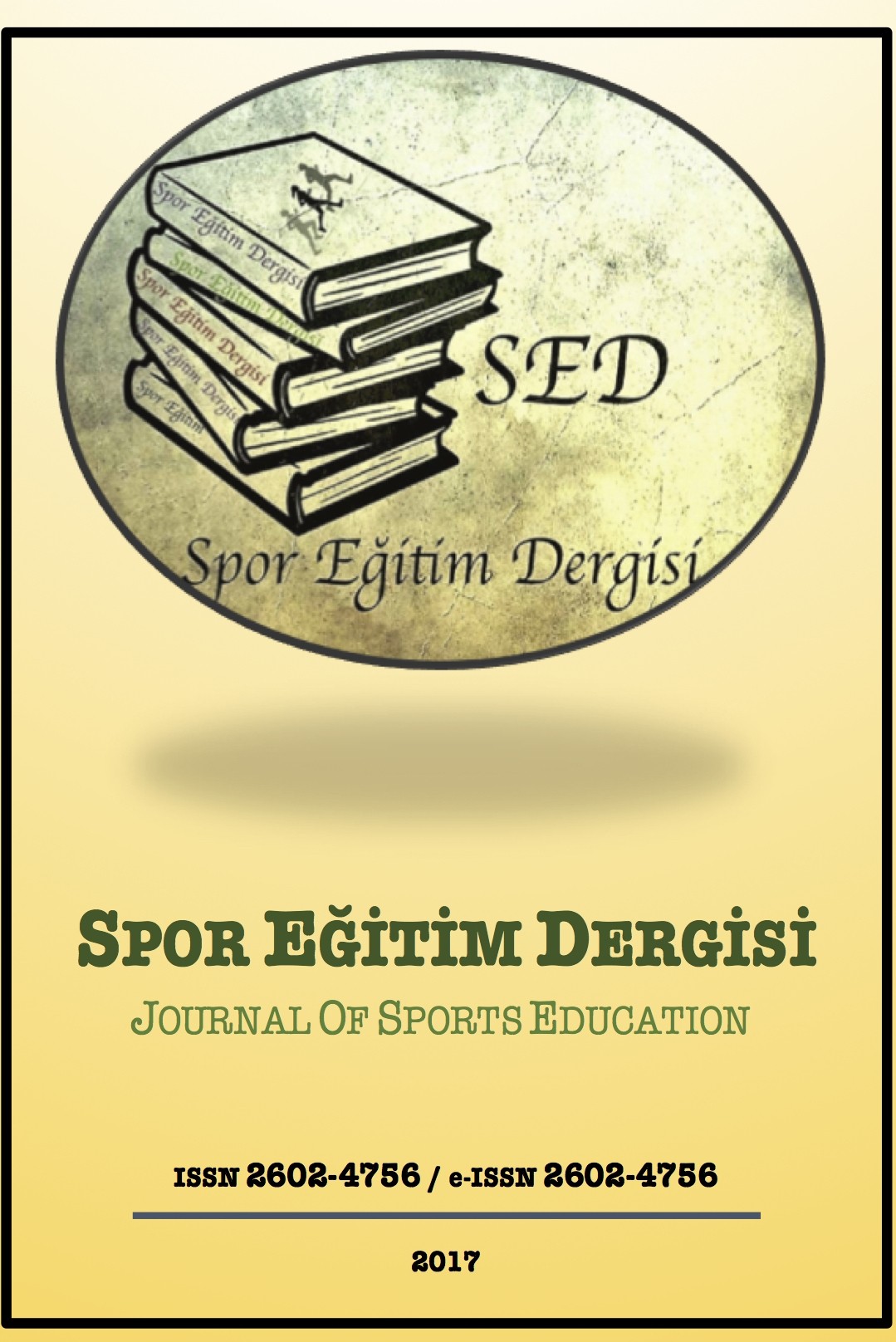
Spor Eğitim Dergisi
Yazarlar: Çiğdem ÖNER
Konular:Spor Bilimleri
Anahtar Kelimeler:Self Esteem,Psychological Resilience,Exercise Leaders,Young Adulthood,Exercise and Sport Psychology
Özet: In this study, it is aimed to examine the relationship between the self-esteem and psychological resilience of young adult exercise leaders and determine whether some descriptive variables and psychological resilience are predictors of self-esteem. In the study based on relational screening model, Coopersmith Self-Esteem Inventory (CSEI), The Resilience Scale for Adults (PRSA) and Personal Information Form were utilized and a total of 324 participants were reached. The datas were measured through descriptive statistical methods, Independent Groups T-Test, Pearson’s Product-Moment Correlation and Multiple Linear Regression Analysis. In the correlational evaluation of research variables; self-esteem score was found to show a positive correlation with the total score and with self-perception, perception of future, structural style, social competence and family cohesion sub-dimension scores of PRSA. In investigations on whether research variables differ according to descriptive variables; women's self-esteem was found significantly higher than men's, in addition, positively significant relationships between age and self-perception and self-esteem, between occupational experience and self-esteem, between frequency of personal weekly training and self-esteem, PRSA total score, future perception, and structural style were identified. Another finding showed that pilates leaders' PRSA total score and self perception, structural style, social competence, family cohesion and social resources scores were significantly higher than fitness leaders. In order to determine the effects of demographic variables and PRSA on self-esteem; multivariate regression analysis was conducted. The results showed that 14% of the CSEI total variance was explained by gender, occupational experience, frequency of personal weekly training and self perception variables in the model. According these; in addition to being a woman it can be said that the increase in occupational experience, in frequency of weekly personal training and in self-perception scores have an effect on self-esteem, and the increases in age, occupational experience, in frequency of personal weekly training, in self-perception and in psychological resilience increase individuals’ self-esteem.